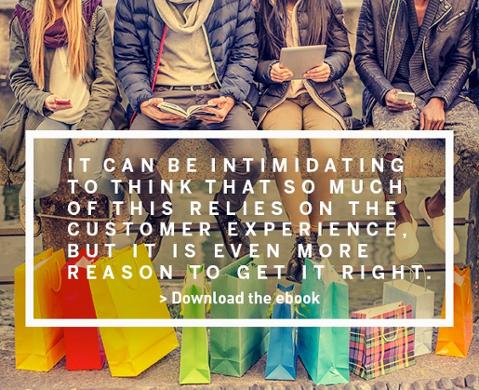Mark Nardone, EVP at PAN Communications, speaks with Ted Rubin, a leading social marketing strategist, keynote speaker, brand evangelist and acting CMO of Brand Innovators.
Watch the video below or read the transcript and learn from Ted Rubin as he discusses why marketers should be careful using the term “millennials” and how these pods of generations are growing up and changing from what they used to be.
00:19:27
Mark Nardone Intro: Generational Marketing
I wanted to touch upon one key thing that I know is keeping marketers up at night — all about generations and generational marketing; the ability to communicate to whatever specific targeted audiences we’re looking at; how Boomers are learning from millennials; how millennials are starting to learn from boomers a little bit. I mean all that kind of stuff, but I think at the end of the day it presents a massive nightmare for marketers, especially the CMO. Can you talk a little bit about that?
00:19:53
Ted Rubin on Generational Marketing:
I think the biggest mistake marketers are making is, first of all, using the word “millennials” way too much, assigning them with characteristics that, to me, are mostly not characteristics of millennials but are of young people.
Remember: Millennials are getting older — they’re in their mid-30s. All of the sudden, a few years ago, the articles were ‘millennials have no interest in insurance!’ Now, new articles are saying ‘millennials are buying insurance in droves!’ Of course! They’re having kids and they’re moving to the suburbs! ‘Millennials will never leave the city! They’re city dwellers.’ Now, millennials are fleeing the cities. Again, because they’re growing up. And then they talk about millennials like they’re this new species. ‘Millennials communicate all the time.’ ‘Millennials listen to their friends.’ Yeah, because they have the tools to do it. It’s not that they’re different.
Millennials care much more about causes and other people – that’s a bunch of crap. I like to say that Boomers were the original millennials. I mean think about it: Boomers were the first to march on Washington, change voting rights, stop a war. They stopped, they became yuppies. No, they had to stop because they needed to get a job and pay bills. You could only march on Washington by getting in your old beat up Volkswagen or your Volkswagen van and driving to Washington. Now, you can march on Washington 24/7 from wherever you are. So, the reason millennials care so much more about causes is because they can. They have the time and the tools to.
Number one is, I think we have to realize they’re not from another planet, that millennials and Gen-Z and younger generations are just growing up with different experiences and different tools. You have to look at it more holistically that way. And then the other side of it is, that we just have to remember that there’s so many different groups within these groups. I rarely hear someone saying ‘we’re marketing to Boomers,’ I hear them say ‘we’re marketing to women, in their 60s, in the Southeast.’ You don’t hear that a lot with millennials, and I think we have to remember that those groups are still very diverse.
##
Interested in learning more? Check out other sections from the conversation: The “Connection Economy”, Employee Advocacy, The Empowered Customer, Key Learnings from B2B Companies and Brand Change Agents.




